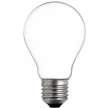5 Tech Patents That May Affect the Future
How a handful of inventions will affect the future.

With the creativity one has to become an inventor, there is still an enormous amount of patents that never really amount to much in the marketplace. It would be a fair assessment to say that less than 10% of them are meant for future development. This may be even more exaggerated in the near future with tech companies filing more frivolous patents.
This is a shortlist of patents that I believe will continue to impact the future of technological development:
The Motorized Exoskeleton
While up-right walking robots or mecha suits seem like something out of anime, it’s something that’s been in the works since 1890. Nicholas Yagin first illustrated a mechanical exoskeleton that could be used for soldiers to have excelled movement on the battlefield. Due to technological restraints at the time, it was left at just that.
General Electric and the US military had also collaborated with creating an exoskeleton to lift and move heavy objects in the 1960s. Due to some malfunctions and wild movements, not much came from this project.
Fortunately, there is now a more realistic patent of an exoskeleton by ReWalk. For the time being, the intention of the design is to be used to help those suffering from paralysis, but other implementations are certainly in development.
3D Printers
While it seems like 3D printers had gained popularity only recently, the patent for it had existed since 1986. It’s now quite affordable to obtain a hobbyist model to create plastic toys or other elaborate creations, but there are implications on how it can be used to automate the production of just about anything.
For example, BMW is already using 3D printing technology to mass-produce some of its car parts. Since industrial 3D printing can use other materials like metal, it wouldn’t be surprising if most simplistic objects were made in this manner.
Brain Implant Chips
The idea of controlling the brain with electrical signals is a reality with this patent from 1993. Staying true to the “brain chip” name, a device with metal needles are used to stimulate certain points in the brain.
While some may have the idea for nefarious artificial intelligence applications, this could be highly useful for biomedical research. Check out this video on how researchers combined this idea with a bionic arm.
Nano-scaled graphene plates
Science nerds are still waiting for the age of graphene, from this patent, to take over computer chips and other industrial materials. Using carbon molecules, one can create an extremely strong, heat resistant, and electrically conductive material. Of course, coming up with a cost-efficient manufacturing process is the first step.
Data Encryption
Bringing attention to the software engineering side of things, encryption remains one of the hardest and important aspects of computer science. The oldest patent regarding software encryption goes back to 1977 and is in regards to public-key cryptography.
Without such patents, the likes of SSL security, Bitcoin, and disk encryption wouldn’t have been a reality. Those who use VPNs to eschew government censorship (like in China or UAE) would also appreciate this patent coming to fruition.
Innovators Filing Patents
In the age of patent trolls, there are lots of whacky things being filed by large companies, but the independent inventor can also get into it. Assuming an idea isn’t taken, your well put together patent can be submitted to the USPTO via mail, fax or online.
With an approved patent, new inventors are put into a position where they can legally defend their product in the free market, or lease out usage rights to other companies. Whether a patent is worth filing or not depends on if something is market viable, but you never know what kind of ideas will be in demand decades from now.






Comments
There are no comments for this story
Be the first to respond and start the conversation.